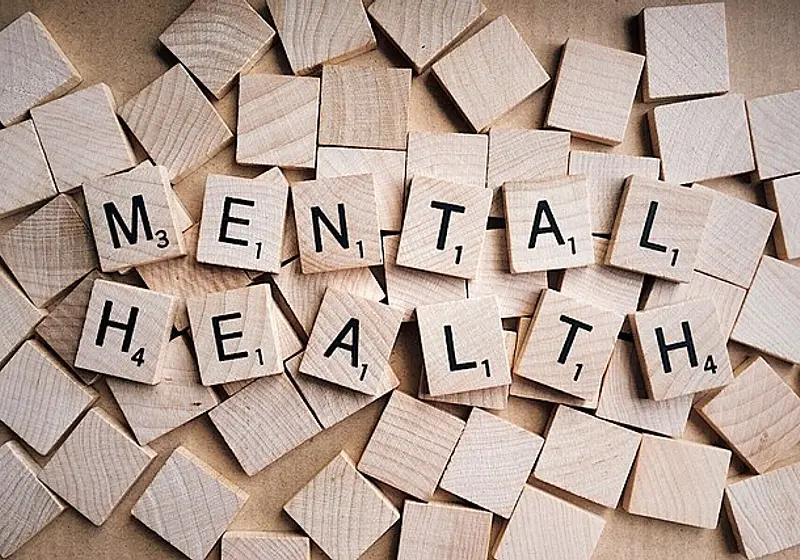In the hustle and bustle of modern life, amidst the constant demands of work, social commitments, and technology, one crucial aspect often takes a backseat – a good night's sleep. Sleep is more than just a nightly ritual; it is a fundamental pillar of our overall well-being. As we navigate the complexities of our daily lives, the significance of quality sleep becomes increasingly apparent, particularly when it comes to the health of our minds.
In this fast-paced world, where success is often measured by productivity and achievement, we may find ourselves sacrificing precious hours of sleep to meet deadlines or pursue personal goals. Yet, the consequences of such sacrifices extend far beyond mere tiredness. Scientific research continually unveils the profound impact of sleep on cognitive function, emotional stability, and creative thinking.
The Science Behind Sleep and Mental Health
In the intricate dance between the body and the mind, sleep emerges as a maestro orchestrating harmony. The science behind sleep and its profound impact on mental health is a tapestry woven with intricate threads of biology and psychology.
Understanding the Sleep Cycles
To comprehend the role of sleep in mental well-being, one must first explore the fascinating realm of sleep cycles. Our slumber is not a uniform state but a dynamic progression through distinct phases, each serving a unique purpose. The sleep cycle consists of REM (Rapid Eye Movement) and non-REM stages, with each phase contributing to different aspects of cognitive function and restoration. While REM sleep is associated with vivid dreaming and emotional regulation, non-REM sleep is essential for physical rejuvenation and memory consolidation.
Neurotransmitters and Hormonal Harmony
Behind the scenes, neurotransmitters and hormones choreograph the symphony of sleep. Serotonin, a neurotransmitter crucial for mood regulation, is intricately linked with sleep quality. Conversely, the stress hormone cortisol, often heightened in sleep-deprived individuals, can disrupt the delicate balance necessary for a peaceful night's rest. Understanding these chemical nuances provides insight into why sleep is not just a passive state but an active process essential for maintaining mental equilibrium.
The Nightly Repair Shop for the Brain
Imagine sleep as the brain's repair shop, open exclusively during the night hours. As we rest, our brains engage in a meticulous process of detoxification, eliminating waste products accumulated during the day. This cleansing mechanism, orchestrated by the glymphatic system, is most active during deep sleep, emphasizing the vital role of rest in sustaining cognitive health. Furthermore, the consolidation of memories occurs predominantly during REM sleep, contributing to enhanced learning and information retention.
Sleep's Role in Neuroplasticity
Neuroplasticity, the brain's ability to reorganize and form new neural connections, is another facet deeply influenced by our sleep patterns. During sleep, the brain consolidates learning, reinforcing synaptic connections and promoting the integration of new information. This neuroplasticity not only enhances memory but also lays the foundation for adaptive thinking and problem-solving skills. In essence, a good night's sleep acts as a sculptor, molding the neural landscape for optimal cognitive functioning.
The Interplay of Sleep and Circadian Rhythms
Our internal biological clock, governed by circadian rhythms, regulates the timing of sleep and wakefulness. Disrupting these rhythms, often encountered in irregular sleep patterns or shift work, can have profound consequences on mental health.
The circadian system influences not only the quantity but also the quality of sleep, underscoring the importance of aligning our sleep schedule with the natural rhythms dictated by our biology. Recognizing this interplay emphasizes the need for a holistic approach to mental well-being that encompasses not just the duration but also the timing of our sleep.
Memory Consolidation and Learning
In the intricate ballet of sleep, one of its most enchanting performances is the role it plays in memory consolidation and learning. As we surrender to the embrace of slumber, the brain orchestrates a symphony that enhances our ability to acquire, store, and retrieve information, thereby shaping the foundation of our cognitive prowess.
The Nocturnal Rehearsal of Memories
Picture sleep as a nocturnal rehearsal studio for the memories we forge during wakefulness. As we traverse the various sleep cycles, particularly the REM stage, the brain replays and consolidates the day's experiences. This process, known as memory consolidation, involves the strengthening of neural connections related to recent experiences, transforming them from fragile fragments into robust and enduring memories. It's during these serene nocturnal hours that the seemingly mundane events of the day find their place in the tapestry of our long-term memory.
Enhanced Learning Through Sleep
Scientific investigations have consistently unveiled the profound connection between quality sleep and enhanced learning. Studies show that individuals who enjoy sufficient and undisturbed sleep exhibit improved performance in tasks requiring memory recall, problem-solving, and creative thinking. This connection is particularly crucial for students and professionals engaged in tasks that demand cognitive dexterity and adaptability.
REM Sleep and Emotional Memory Processing
Delving deeper into the layers of memory consolidation, the REM stage of sleep emerges as a pivotal player in processing emotional memories. Emotional experiences are imbued with a heightened significance during REM sleep, leading to a nuanced understanding and integration of emotions. This not only contributes to emotional intelligence but also fortifies mental resilience, enabling individuals to navigate the complexities of their emotional landscapes with greater finesse.
Sleep, Synapses, and Cognitive Plasticity
At the microscopic level, sleep nurtures the plasticity of our brains. Synapses, the junctions between nerve cells, undergo dynamic changes during sleep, strengthening connections that contribute to learning and adaptive thinking. This synaptic plasticity, fueled by sleep, lays the groundwork for cognitive flexibility—the ability to adapt to new information and challenges, essential for success in an ever-evolving world.
The Power of Naps in Learning
It's not just nightly sleep that influences learning; power naps during the day also wield a considerable impact. Short bursts of sleep, particularly during the afternoon, have been shown to enhance memory consolidation, improve alertness, and bolster cognitive performance. This insight underscores the importance of embracing a holistic approach to sleep, recognizing the benefits of both nightly rest and strategic daytime napping.
Emotional Well-being and Mood Regulation
In the grand tapestry of mental health, the threads of emotion weave a narrative that is profoundly influenced by the quality of our sleep. The relationship between a good night's rest and emotional well-being is intricate, with sleep acting as both a sentinel guarding against emotional distress and a healer fostering resilience in the face of life's challenges.
The Sleep-Emotion Nexus
At the heart of the connection between sleep and emotional well-being lies the intricate interplay between the amygdala and the prefrontal cortex. The amygdala, a region associated with emotional processing, and the prefrontal cortex, responsible for executive functions such as decision-making and impulse control, engage in a delicate dance moderated by sleep.
When well-rested, the prefrontal cortex exerts a regulatory influence on the amygdala, facilitating emotional balance and nuanced responses to stimuli. Conversely, sleep deprivation weakens this regulatory control, amplifying emotional reactivity and diminishing our capacity to navigate emotional challenges with resilience.
Stress, Sleep, and the Cortisol Connection
A good night's sleep serves as a natural antidote to the stresses encountered during waking hours. Sleep, particularly the restorative deep sleep stages, acts as a counterbalance to the cortisol surge induced by stress. Inadequate sleep, on the other hand, perpetuates a heightened state of cortisol, contributing to a vicious cycle of increased stress and compromised sleep quality. Recognizing this reciprocal relationship underscores the pivotal role of sleep in breaking the chains of chronic stress and fostering emotional well-being.
Sleep and Emotional Resilience
Emotional resilience, the ability to bounce back from adversity, finds a steadfast ally in quality sleep. Individuals who consistently enjoy sufficient and restful sleep are better equipped to navigate life's emotional rollercoaster. Sleep not only fortifies our capacity to cope with stressors but also enhances our adaptive responses to challenging situations. This resilience, cultivated through restful nights, becomes a cornerstone of mental well-being, allowing individuals to face adversity with composure and bounce back from setbacks with renewed vigor.
Dreams as Emotional Rehearsals
The enigmatic realm of dreams also plays a role in emotional regulation. Dreams provide a subconscious stage for the rehearsal and processing of emotions, offering a cathartic outlet for unresolved feelings. As the mind weaves narratives in the theater of dreams, it engages in a form of emotional problem-solving, paving the way for emotional equilibrium when the waking world is confronted with similar challenges.
Sleep and the Alleviation of Mood Disorders
Scientific inquiries consistently underscore the correlation between sleep deprivation and mood disorders such as anxiety and depression. Sleep disturbances, whether chronic or intermittent, elevate the risk of developing mood disorders and exacerbate existing conditions. Conversely, prioritizing sleep emerges as a potent preventive measure and a complementary therapeutic strategy in the holistic treatment of mood disorders.
Creativity and Problem-Solving
In the vast realm of human ingenuity, the connection between sleep and creativity emerges as a hidden alchemy, where the dormant landscapes of the mind come alive in the quietude of the night. Beyond the practicalities of rest and restoration, a good night's sleep serves as an incubator for novel ideas, innovative thinking, and the unfurling of creative potential.
The Unconscious Unleashed
As the conscious mind relinquishes control during sleep, the unconscious mind takes center stage. This shift in cognitive dynamics is particularly conducive to creative thinking. The unfettered nature of the unconscious mind allows for the free association of ideas, the forging of unique connections, and the synthesis of information in novel ways. It's in this unguarded state that the seeds of creativity are sown, ready to blossom upon awakening.
Sleep and the Creative Problem-Solving Process
Creativity often intertwines with problem-solving, and sleep plays a crucial role in enhancing both processes. Studies reveal that individuals who experience sufficient and quality sleep demonstrate improved problem-solving skills and are better equipped to tackle complex challenges. The divergent thinking characteristic of creativity finds fertile ground in the well-rested mind, enabling individuals to explore a multitude of solutions and think beyond conventional boundaries.
Dreams as Catalysts for Creativity
The canvas of dreams, painted in the theater of REM sleep, becomes a fertile ground for creative inspiration. Many renowned artists, writers, and inventors attribute their breakthroughs to ideas conceived in the realm of dreams. Whether it's a surreal landscape, a cryptic symbol, or a vivid scenario, dreams offer a wellspring of creative stimuli that can be harnessed upon waking. The act of dream journaling, capturing these ethereal fragments upon waking, becomes a bridge between the subconscious and conscious realms, fueling the creative process.
The Impact of Sleep Architecture on Creativity
Delving into the intricacies of sleep architecture, the cyclical nature of sleep stages proves instrumental in fostering creativity. The alternation between REM and non-REM sleep appears to be particularly influential. Non-REM sleep provides a foundation for memory consolidation and the assimilation of knowledge, while REM sleep contributes to the synthesis of diverse information, offering a holistic perspective that enhances creative thinking.
Sleep Deprivation and Creative Impairment
Conversely, the toll of sleep deprivation on creativity is palpable. Fatigue diminishes cognitive flexibility, impairs divergent thinking, and stifles the ability to connect disparate ideas. In the sleep-deprived mind, the fertile ground for creativity becomes arid, hindering the synthesis of innovative thoughts. Recognizing this inverse relationship underscores the importance of prioritizing sleep as a cornerstone of unlocking and sustaining creative potential.
Incorporating Sleep Hygiene for Creative Minds
For those seeking to harness their creative energies, adopting effective sleep hygiene practices becomes paramount. Establishing a consistent sleep schedule, creating a conducive sleep environment, and prioritizing relaxation before bedtime are pivotal steps in nurturing both restful sleep and a fertile ground for creative ideation. You can also choose better and more luxurious bedding such as the Tik Tok famous Black Bed Set.
Let us slide into your dms 🥰
Get notified of top trending articles like this one every week! (we won't spam you)The Impact of Sleep on Stress Reduction
In the relentless cadence of modern life, stress has become an omnipresent companion, casting its shadow on mental well-being. Yet, amidst the challenges and pressures, a good night's sleep emerges as a formidable ally, wielding the power to mitigate the burdens of stress and fortify the mind against its deleterious effects.
Cortisol Regulation and the Sleep-Stress Nexus
At the heart of the relationship between sleep and stress lies the intricate dance of cortisol, the stress hormone. Adequate sleep serves as a natural regulator, helping maintain cortisol levels within a healthy range. In the sanctuary of restful sleep, cortisol ebbs and flows in harmony with the body's circadian rhythms.
Conversely, sleep deprivation disrupts this delicate balance, leading to elevated and prolonged cortisol release. The ensuing state of chronic stress not only compromises mental health but also permeates various facets of daily life.
Sleep's Role in Emotional Resilience
Emotional resilience, the ability to navigate challenges with grace and composure, finds a stalwart companion in restful sleep. A well-rested mind is better equipped to regulate emotions, interpret stressors with clarity, and mount effective coping strategies. The emotional fortitude cultivated through quality sleep acts as a shield against the erosive impact of chronic stress, allowing individuals to confront adversity with resilience and bounce back from setbacks with renewed vigor.
The Bidirectional Relationship
The relationship between sleep and stress is inherently bidirectional. While stress can disrupt sleep patterns, the reverse is equally true—insufficient sleep can amplify stress levels. Breaking free from this cycle necessitates recognizing the symbiotic nature of the relationship and adopting strategies that prioritize both restful sleep and effective stress management.
Sleep, Cognitive Function, and Stress Coping Mechanisms
The cognitive faculties underpinning effective stress coping—such as decision-making, attention, and problem-solving—are intricately linked to the quality of sleep. Sleep deprivation compromises these cognitive functions, impairing the ability to assess and navigate stressors effectively. Conversely, a well-rested mind sharpens cognitive acuity, fostering a proactive approach to stress management and enhancing the resilience needed to weather life's storms.
Sleep's Impact on Physical Well-being and Stress Reduction
The repercussions of stress extend beyond the mental realm, permeating into physical well-being. Quality sleep acts as a healing balm, not only for the mind but also for the body. During deep sleep, the body undergoes repair and regeneration, bolstering the immune system and promoting overall physical resilience. This holistic approach to health underscores the integral role of sleep in the comprehensive management of stress.
Practical Tips for Stress-Reducing Sleep
Empowering individuals to harness the stress-reducing potential of sleep involves practical lifestyle adjustments. Establishing a consistent sleep routine, creating a calming bedtime ritual, and optimizing the sleep environment are foundational steps. Additionally, mindfulness practices, such as meditation or deep breathing exercises before bedtime, can serve as potent tools in quieting the mind and preparing it for restful sleep.

Take the Quiz: What is your IQ level?
Find out how smart you are by taking this quiz!
Establishing Healthy Sleep Habits
In the rhythmic cadence of our daily lives, the importance of establishing healthy sleep habits reverberates as a cornerstone for overall well-being. The nightly rituals and lifestyle choices surrounding sleep are not mere routines but a profound influence that shapes the quality of our rest, impacting everything from cognitive function to emotional resilience.
Consistency as the Bedrock
At the heart of healthy sleep habits lies the principle of consistency. Striving for a consistent sleep schedule, where bedtime and wake-up times remain steady even on weekends, helps regulate the body's internal clock. This regularity reinforces the circadian rhythm, aligning our sleep-wake cycle with the natural patterns dictated by our biology.
Crafting a Tranquil Sleep Sanctuary
The environment in which we sleep plays a pivotal role in the quality of rest we attain. Creating a tranquil sleep sanctuary involves addressing factors such as light, noise, and temperature. Blackout curtains, earplugs, and a comfortable room temperature contribute to an atmosphere conducive to restful sleep. By curating a serene space, we signal to our minds that it's time to unwind and embrace the restorative embrace of sleep.
Digital Detox Before Bed
In the age of perpetual connectivity, the blue light emitted by screens can disrupt the production of melatonin, the hormone responsible for inducing sleep. Establishing a digital detox before bedtime, ideally an hour or more, allows the mind to disengage from the stimuli of electronic devices. This intentional break fosters a transition from the hustle of the day to the tranquility of the night.
Mindfulness Practices for Bedtime Bliss
Integrating mindfulness practices into the bedtime routine serves as a powerful tool for preparing the mind for rest. Techniques such as meditation, deep breathing exercises, or gentle stretching can help alleviate the stresses of the day, calming the mind and promoting a sense of serenity. These practices cultivate a mental state conducive to the seamless entry into a restful slumber.
Evaluate and Enhance Sleep Hygiene
The concept of sleep hygiene encompasses various habits and practices that influence the quality of sleep. Assessing the quality of your mattress and pillows to ensure proper support is crucial. Additionally, being mindful of dietary choices, avoiding stimulants like caffeine close to bedtime, and evaluating sleep posture contribute to an optimal sleep environment.
Regular Physical Activity
Physical activity and sleep are interconnected facets of well-being. Regular exercise, especially earlier in the day, promotes deeper and more restorative sleep. Engaging in moderate activities, be it a brisk walk or a workout routine, contributes to overall health and enhances the body's readiness for rejuvenating sleep. However, it's essential to strike a balance, avoiding intense workouts close to bedtime to prevent interference with the natural sleep cycle.
Balanced Nutrition and Hydration
What we consume throughout the day can influence our sleep patterns. While going to bed hungry may be uncomfortable, heavy or rich meals close to bedtime can disrupt digestion and hinder sleep quality. Striking a balance with a light, balanced snack and staying adequately hydrated without excessive fluid intake before bedtime contributes to a more comfortable night's rest.
Create and Stick to a Sleep Routine
Routines signal to the body and mind that it's time to wind down. Creating a pre-sleep routine can be a powerful cue for relaxation. This may include activities like reading a book, taking a warm bath, or practicing gratitude. The consistency of the routine helps train the body to recognize and respond to the impending transition into sleep.
Mindful Awakening
Just as the pre-sleep routine sets the stage for rest, a mindful awakening routine contributes to a positive start to the day. Gently waking up at the same time each morning, exposing oneself to natural light, and engaging in activities that promote alertness all contribute to a harmonious wake-up experience.
In the symphony of healthy sleep habits, each note contributes to the melody of restful nights and energized mornings. As we conclude our exploration of the impact of sleep on mental health, the overarching theme of cultivating these habits invites reflection on the transformative potential within our nightly rhythms. By embracing these practices, we embark on a journey toward holistic well-being, where the embrace of rest becomes a foundation for vitality, resilience, and an enriched quality of life.
Final Note
In the intricate tapestry of our lives, the significance of sleep as a cornerstone of mental health emerges as a profound and transformative force. Our exploration has traversed the realms of emotional resilience, creativity, stress reduction, memory consolidation, and the establishment of healthy sleep habits, unveiling the myriad ways in which a good night's rest shapes the contours of our well-being.
From the delicate dance of cortisol regulation and emotional fortitude to the symphony of dreams and memory consolidation, sleep orchestrates a harmonious interplay that extends far beyond mere physical rest. It is a masterful conductor, infusing our waking hours with emotional balance, cognitive acuity, and creative vigor. Moreover, the establishment of healthy sleep habits serves as a gateway to a more vibrant and enriched life, fostering resilience, adaptability, and an ever-present capacity for learning.
As we embrace the transformative power of a well-rested mind, let us carry forward the wisdom garnered from this exploration into our daily lives. By prioritizing sleep, nurturing our emotional landscapes, and cultivating habits that honor the sanctity of rest, we embark on a journey toward holistic well-being—one where the embrace of sleep becomes a transformative ritual, weaving vitality and resilience into the very fabric of our existence. In the gentle cradle of the night, we find not only rest but the key to unlocking our fullest potential.








.jpg)




